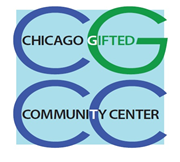From what I have observed, it appears that schools spent
much of the summer preparing for face-to-face or hybrid instruction, focusing
on issues surrounding the physical safety of students and staff. However, with
the uptick of the spread of COVID-19 around the country and slowly increasing
numbers in Chicagoland, many schools have made last-minute decisions to return
to all-virtual instruction. Our schools will have to quickly come up with plans
for virtual learning that will last for several months, if not more.
I am not new to online instruction, as I am beginning my
ninth year as a Music Appreciation instructor at Illinois Virtual School (IVS), a public,
nonprofit, supplemental course provider that offers courses to private, public,
and home schools across Illinois. I also facilitate professional development
courses for Quality Matters (QM),
an international organization focused on providing quality online learning
experiences. There has been great demand this summer for professional
development courses, and I have been busy running workshops about the QM K-12 standards,
teaching online, and designing online courses.
It used to be that I would get quizzical looks when I told
people that I taught online, but things changed this spring. However, what we
all experienced last spring was emergency online instruction. There are many
misconceptions out there about virtual instruction, and schools may not realize
how much support will be necessary for teachers to be truly successful teaching
online. I think it's a matter of "they don't know what they don't
know." People honestly don't realize that online instruction is a very
different kind of pedagogy with its own set of best practices. Hopefully,
schools will see the need to provide specialized training, but until then, we
may need to give teachers a bit of patience and grace as they move into a more
long-term virtual space.
If you are interested in learning more about virtual
instruction from those who are specialists in the field, these are the best,
most reputable resources that I am aware of:
Quality Matters
and the Virtual Learning
Leadership Alliance are some of the major organizations in the field of
K-12 online education.
There is also a set of National
Standards for Quality Online Learning, a cooperative effort between QM and
VLLA, which replace the old iNACOL standards.
Illinois
Virtual School offers self-paced courses
about online and blended learning for a reasonable price. The Northwestern
Center for Talent Development has been offering a series of webinars through the Illinois Association for Gifted Children
and the Illinois
Principals Association regarding online instruction for advanced learners.
Northwestern CTD will also consult with schools.
You might even consider passing along these sources
of information, professional development, and training to the teachers and
administrators in your life.
